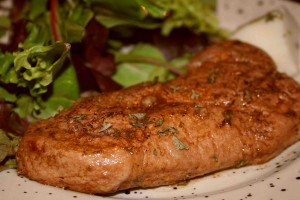Zinc is a vital trace mineral for the body’s immune system to work properly. It plays a major role in cell division, growth of cells, wound health, breaking down of carbohydrates and delay in aging. Zinc is second only to iron, when it comes to requirement in the body. Zinc is important for our body’s immune system to work properly. It is also used for increased sense of smell and taste.
Zinc Diet
Zinc is largely found in high protein foods like beef, pork and lamb. The dark meat of chicken contains more zinc compared to light. It is also found in peanuts, peanut butter and legumes. Vegetables that contain protein and fruits do not have zinc as much as the ones found in non-vegetarian foods. Secondly, the zinc found in low protein vegetables cannot be used by the body.
Zinc Deficiency Symptoms
These are as under:
1. Slow growth
2. Poor appetite
3. Wounds taking more time to heal
4. Frequent infections
5. Problems with sense of taste
6. Lethargy
7. Skin lesions
8. Low libido
9. Problems with sense of smell
10. Hair loss
11. Hypnogonadism in males
Zinc Dietary Recommendation
Food and Nutrition Board of the Institute of Medicine indicates the following dietary reference intakes (DRIs) for zinc in human beings:
Infants:
• 0-6 months: 2 mg*/day
• 7-12 months: 3 mg/day
Children and Adolescents
• 1-3 years: 3 mg/day
• 4-8 years: 5 mg/day
• 9-13 years: 8 mg/day
Males:
• 14 and older: 11 mg/day
Females:
• 14-18 years: 9 mg/day
• 19 and older: 8 mg/day
*mg is milligrams
Women who are pregnant or nursing (lactating) need higher levels of zinc. You can contact with your doctor or nutritionist to find out how much quantity of zinc your body needs.
